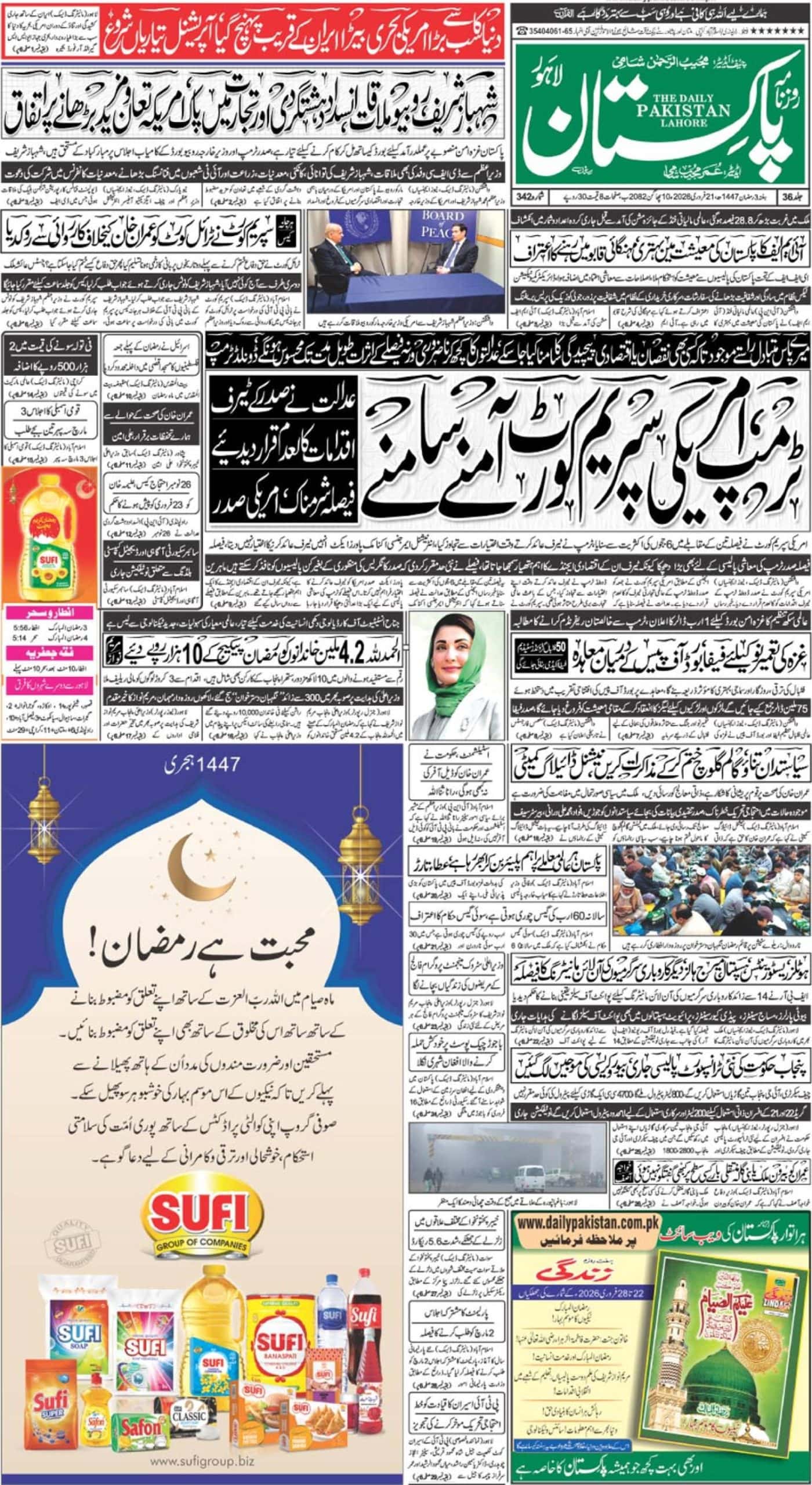LAHORE – Punjab Chief Minister Shehbaz Sharif has surpassed his political rivals on honesty charts after being voted honest by nearly 50 percent respondents in a survey, conducted by the Transparency International.
According to the survey, Shehbaz Sharif was voted honest by 49% of the respondents, followed by Nawaz Sharif at 40%, Imran Khan at 26% and Asif Zardari at 1%.
https://en.dailypakistan.com.pk/pakistan/abbasi-maryam-put-weight-behind-shehbaz-as-candidate-for-next-pm/
PML-N Govt reduced Corruption
The figures about the incumbent government of Pakistan Muslim League-Nawaz’s (PML-N) role in weeding out corruption were also released. They show PML-N outperformed other parties in reducing corruption and ensuring transparency. Results covered a time span of 3 decades and reviewed all the governments in between.
Pakistan, under the PML-N’s, marked an improvement on Corruption Perception Index (CPI) Score during last five years.
In 2012, Pakistan’s CPI was stood at 27th position out of 100. The ranking improved to 32/100 in 2017. Whereas CPI score of many developed and developing countries has drastically decreased.
When PPP left, Pakistan’s rank from the bottom was 36 and now Pakistan’s number has reached 64 from the bottom. The Government has gone a long way, similarly, it improved in 1997 and 1998, at 5 and 15 respectively, which was 2 in 1996 during PPP led government and 13 in 1999 during Martial law.
The TI highlighted efforts made by PML-N’s leadership to achieve growth. It added that a favorable enabling environment for investment and public-private partnerships developed due to these efforts.
Despite political protests and demonstrations, especially at the start of the term, Pakistan has been able to do well on the stock exchange and in terms of market competitiveness internationally.
At the federal level and in Punjab, international contractors have been involved in mega projects across public transport, health and power generation in addition to many others, worth billions of rupees.
In the projects, very few reports on corruption were surfaced within the contracts and immediate investigations into any potential allegations.
Leaders of China and Turkey also commended the role of government to control corruption in the mega projects. There is confidence in the ability of Punjab and Pakistan as a whole to commission and complete contracts without corruption, it added.
Punjab Government’s Role in Transparency
The TI report said that the role of the Punjab government in exploring public-private partnerships such as outsourcing has also facilitated transparency.
It is believed that the private sector is able to manage funds more productively, aggressive efforts to improve the efficiency of the market structure beyond rigid government architecture is therefore commended and builds faith in the fact the government is trying to bridge the gaps identified.
The existence of public sector companies to innovate service delivery is another factor that supports this. These section 42 companies mimic private sector companies and report to a board of qualified technocrats, experts, academics and government officials so that there is an added layer of accountability to the departments, further transforming the modes of governance.
Similarly, increases in revenue and savings which are now more widely reported as well have helped society view the government as transparent or at least moving in that direction.
This includes the role of improved public procurement, particularly through technological interventions, strong negotiations and centralized procurements where Government has reported savings of billions of rupees.
An example in this regard is PKR 682 billion saved in 12 mega projects in Punjab in last 5 years. This includes power plants, Orange Line Metro Train, Metro buses, Chiniot iron ore deposits and Punjab Safe Cities etc. Moreover, the increase in taxation revenue at a provincial level such as the increase collection of GST by the Punjab Revenue Authority has improved perceptions.
Social sector reforms in Health, Education, Water, Sanitation and social protection has increased transparency, particularly through the increased accountability mechanisms.
In education, Ghost schools have almost entirely been eradicated in Punjab which is continuously monitored, teachers are hired purely on merit, healthcare funds are also being utilized effectively at a district level through the Health Councils and the drug control regime has an effective mechanism to remove and penalize counterfeit medicines.
Members of the society are also told that budget allocations have increased with underutilization massively reduced over the years for the social sectors.
The Land Reforms in Punjab have been appreciated by international partners like the World Bank. These reforms and their reporting have allowed for greater transparency and improved perceptions of the work being undertaken.
Ease and accessibility of information is another reason that transparency has improved. Multiple helplines for different interventions and departments exist, people are able to contact departments with queries regarding service provision; this dissemination of information has also affected the perception of governance in a positive light.
The existence of citizen feedback models such as through the Punjab Information Technology Board has also allowed for closer coordination with citizens; not only do people feel important that their opinion is being taken into consideration but their feedback is actually taken by the departments to take corrective action.
Technological advancements and open access websites reporting service delivery data, such as that for education, immunization, land records and others are some of the factors that have brought citizens closer in their opinion to what they think the government is doing.













